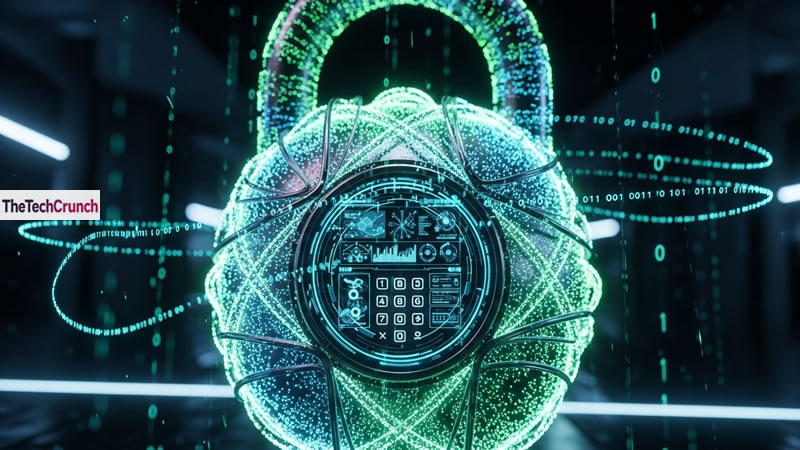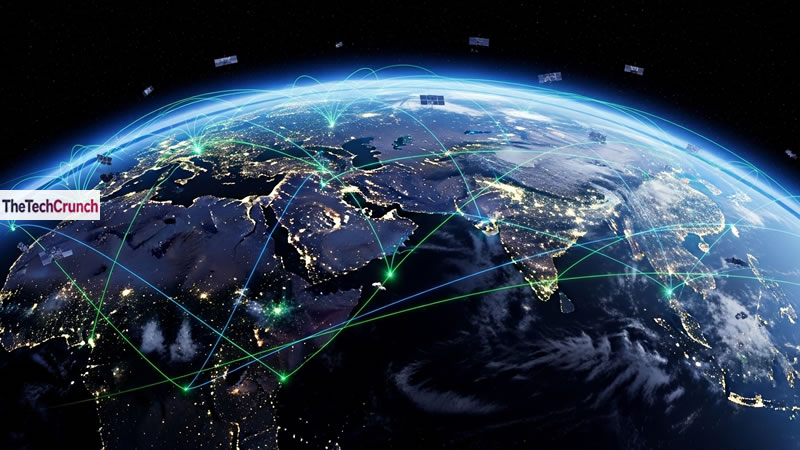Quantum Computing in 2025 is no longer a distant dream. It is becoming one of the most powerful forces shaping the future of technology. This new form of computing uses the strange laws of quantum physics to process information in ways classical computers never could.
Stay up to date with the latest technology in TheTechCrunch. This covers artificial intelligence, mobile and web apps, modern things, cybersecurity, and general technical news. From AI’s successes to chat and generative tools. Such as smartphones, laptops, and wearables’ special reviews. TheTechCrunch gives an insight into this case.
The result is faster problem-solving, deeper analysis, and a revolution in data protection. As quantum systems grow stronger, they are starting to redefine cybersecurity, both as a tool and as a challenge.
What Makes Quantum Computing Different
Traditional computers work with bits that hold a value of either 0 or 1. Quantum computers use qubits, which can be both 0 and 1 at the same time due to a property called superposition. This means they can process millions of possibilities simultaneously. Quantum entanglement adds another layer of power, allowing qubits to link and share information instantly, even across large distances.
In 2025, this technology will be advancing at a rapid pace. Major companies like IBM, Google, and Intel are racing to build stable quantum processors. Governments and research institutions are also investing heavily. The reason is simple: quantum computing can perform tasks that would take classical computers thousands of years.
The Quantum Leap in Cybersecurity
Cybersecurity depends on encryption. Every time you send a message, log in, or make an online payment, encryption keeps your data safe. Current encryption methods rely on complex mathematical problems that are nearly impossible for classical computers to solve. But with quantum computing, those same problems could be cracked in minutes.

This creates both excitement and fear. On the one hand, quantum computing can build new security systems that are nearly unbreakable. On the other hand, it can break many of the encryption systems we rely on today. This double-edged power is what makes Quantum Computing in 2025 such a critical topic.
The Threat to Traditional Encryption
The biggest challenge lies in how quantum computers handle public-key encryption. Systems like RSA, ECC, and Diffie-Hellman are the backbone of today’s digital security. They protect everything from bank transactions to confidential emails. But these systems rely on factoring large prime numbers — a task that classical computers cannot do efficiently.
Quantum computers, using algorithms like Shor’s Algorithm, can solve these problems exponentially faster. This means a sufficiently powerful quantum computer could break encryption keys that protect global communication systems. Even though we have not yet reached that level of power, experts agree that it is only a matter of time.
As a result, cybersecurity experts in 2025 are racing to prepare for the post-quantum era. Governments and organizations are storing encrypted data that might be vulnerable later. They fear that hackers could record secure data today and decrypt it once quantum technology becomes powerful enough.
Post-Quantum Cryptography
To face these challenges, scientists are developing post-quantum cryptography (PQC). These are new encryption methods designed to resist attacks from quantum computers. PQC focuses on using mathematical problems that even quantum computers find hard to solve.
In 2025, the U.S. National Institute of Standards and Technology (NIST) is working on finalizing quantum-resistant encryption standards. Several algorithms have already been shortlisted, such as CRYSTALS-Kyber and CRYSTALS-Dilithium. Tech companies are starting to integrate these systems into their products to ensure long-term security.
Transitioning to PQC is not easy. It requires massive updates to digital infrastructure, from internet protocols to banking systems. But it is a necessary step to stay safe in the age of Quantum Computing.
Quantum Computing as a Cybersecurity Tool
While many fear quantum computing, it also offers new ways to strengthen cybersecurity. Quantum technology can help detect intrusions, improve authentication, and enhance encryption. One of the most promising ideas is Quantum Key Distribution (QKD).
QKD uses quantum particles, like photons, to share encryption keys securely. If a hacker tries to intercept the communication, the particles change their state, alerting both parties. This means that any tampering is instantly detected. Several countries, including the United States, China, and the UK, are already testing QKD networks.
Quantum computing also helps simulate cyberattacks in ways classical systems cannot. It can analyze vast data sets to detect anomalies faster and predict potential threats before they happen. In 2025, large organizations are exploring how to integrate quantum technology into real-time security monitoring.
Government and Industry Adoption
Governments across the world are treating quantum technology as a matter of national security. In the United States, agencies like the Department of Energy and DARPA are funding major quantum research projects. They aim to stay ahead of adversaries and protect sensitive data.
Private companies are also building quantum-safe infrastructures. IBM and Google have introduced hybrid systems that combine quantum and classical computing for secure data analysis. Cloud providers are exploring quantum encryption services to safeguard enterprise communications.

Financial institutions are testing quantum algorithms to protect transactions and customer data. The collaboration between governments, research institutes, and private industry is what will define the quantum future.
The Ethical and Strategic Challenges
Quantum Computing in 2025 also raises ethical and strategic questions. Who controls quantum power? How can nations ensure fair access while preventing misuse? A single entity with an advanced quantum computer could gain immense control over global data.
This is why transparency, collaboration, and regulation are essential. International agreements are being discussed to prevent cyber warfare powered by quantum systems. Ethical guidelines are needed to balance innovation and responsibility.
Another concern is the “quantum divide.” Not all countries or companies can afford to invest in quantum infrastructure. This could create a global imbalance, where only a few nations have the power to protect or decrypt massive amounts of information.
The Future of Quantum Cybersecurity
Looking ahead, Quantum Computing in 2025 is just the beginning. The next decade will likely see more stable quantum processors, better algorithms, and real-world applications. Cybersecurity will evolve from reactive defense to proactive intelligence.
Explore a complete hub for the latest apps. Smart things and security updates online. Ranging from AI-operated solutions and automation tools. TheTechCrunch offers in-depth articles, comparisons. And specialist analysis is designed to understand the rapidly changing technology. Whether you are keen on robotics, data protection, or the latest digital trends.
Quantum technology will become part of daily digital life. From secure communications to advanced identity systems, its role will expand. The race to quantum security will define the future of digital trust. Those who adapt early will gain a massive advantage in safety and innovation.
TheTechCrunch: Conclusion
Quantum Computing in 2025 marks a turning point in cybersecurity history. It is both a threat and a solution. As encryption faces new challenges, innovation is leading to stronger, smarter systems. The world is entering a new era of digital defense powered by quantum logic. The question is not whether this change will happen, but how fast we can prepare for it.
Here Are More Helpful Articles You Can Explore On TheTechCrunch:
- How Apple Vision Pro Is Defining the Future of Tech
- Agentic AI: The Next Evolution Beyond ChatGPT
- Sora Update Brings AI Videos Of Pets And More
- Wonder Studios Expands AI Creativity in Entertainment
- Emerging Tech Trends 2025 USA
- GM Is Bringing Google Gemini-Powered AI Assistant To Cars In 2026
- Samsung Takes On Apple’s Vision Pro With New Galaxy XR Headset
- YouTube Adds A Timer For You To Stop Scrolling Shorts
- Several Users Reportedly Complain to FTC That ChatGPT Is Causing Psychological Harm
- X Tests Pay-Per-Use Pricing Model for Its API


